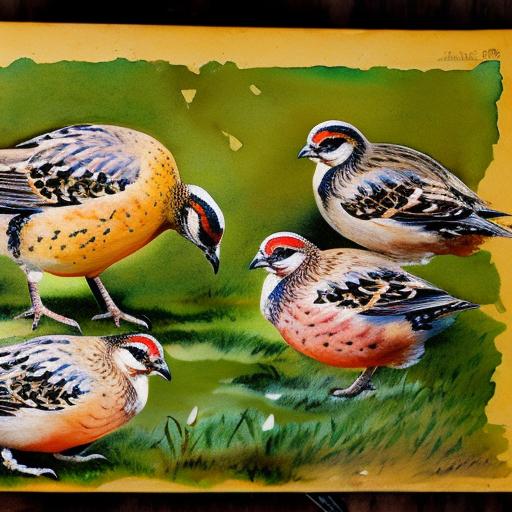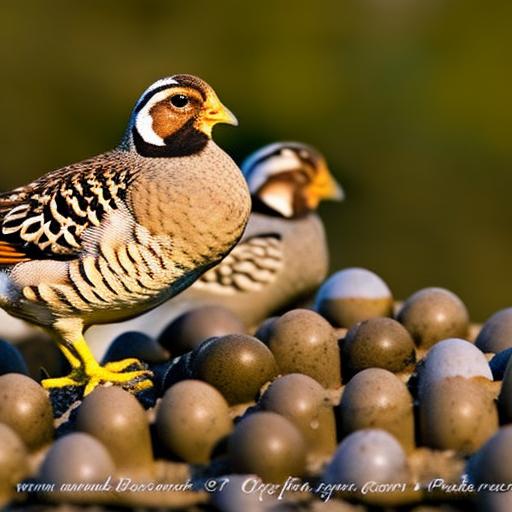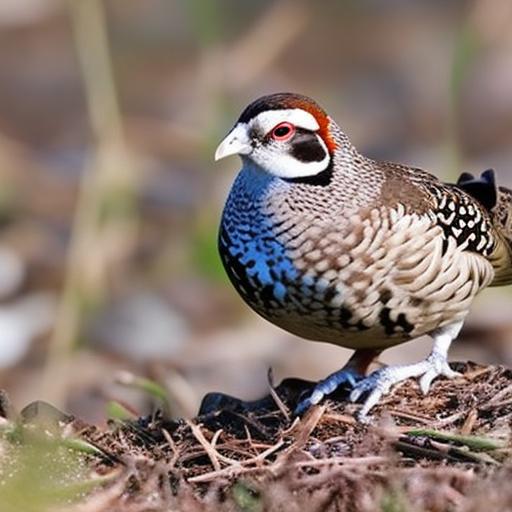Quail raising is a popular and rewarding hobby for many people around the world. Quails are small, ground-dwelling birds that are known for their delicious eggs and meat. They are relatively easy to raise and require minimal space, making them an ideal choice for backyard farmers and homesteaders. Quails are also known for their fast growth and high egg production, making them a profitable venture for those looking to start a small-scale poultry business.
Quail raising can be a fun and educational experience for individuals and families alike. It provides an opportunity to learn about animal husbandry, biology, and the food production process. Additionally, quails are relatively low maintenance compared to other poultry species, making them an attractive option for those with limited time and resources. Whether you are interested in raising quails for personal consumption, as a source of supplemental income, or simply as a hobby, there are several key factors to consider to ensure the success of your quail-raising venture.
Key Takeaways
- Quail raising is a popular and profitable venture for small-scale farmers and homesteaders.
- When choosing the right quail species, consider factors such as egg production, meat quality, and temperament.
- Setting up the quail enclosure requires attention to space, ventilation, and predator protection.
- Feeding and watering quails involves providing a balanced diet and clean water to ensure their health and productivity.
- Health and disease management in quails includes regular monitoring, vaccination, and proper sanitation practices.
- Egg collection and consumption should be done daily, and eggs should be stored properly for freshness.
- Harvesting quail for meat should be done humanely and efficiently, with attention to processing and storage for quality meat products.
Choosing the Right Quail Species
When it comes to quail raising, choosing the right species is crucial for success. There are several species of quails commonly raised for their eggs and meat, including Coturnix quail, Bobwhite quail, and California quail. Each species has its own unique characteristics and requirements, so it’s important to do your research and select the species that best suits your needs and environment.
Coturnix quail, also known as Japanese quail, are the most popular choice for backyard quail raising due to their fast growth, high egg production, and docile nature. They are also relatively small in size, making them easy to handle and manage. Bobwhite quail, on the other hand, are native to North America and are known for their flavorful meat. They are a bit more challenging to raise compared to Coturnix quail but can be a rewarding choice for those looking for a more unique quail-raising experience. California quail are another popular species known for their striking appearance and adaptability to various climates. They are often raised for their ornamental value as well as for eggs and meat.
Before choosing a quail species, consider factors such as climate, available space, local regulations, and your intended purpose for raising quails. It’s also important to source your quails from reputable breeders or hatcheries to ensure the health and quality of your birds.
Setting Up the Quail Enclosure
Creating a suitable enclosure is essential for the health and well-being of your quails. The size and design of the enclosure will depend on the number of quails you plan to raise and the available space on your property. Quails are ground-dwelling birds that require ample space to move around, scratch, and dust bathe. A general rule of thumb is to provide at least 1 square foot of space per quail to ensure they have enough room to thrive.
The enclosure should be secure and predator-proof to protect your quails from potential threats such as raccoons, foxes, and birds of prey. Use sturdy wire mesh or hardware cloth to cover the sides and roof of the enclosure, and consider burying the wire at least 6 inches into the ground to prevent digging predators from gaining access. Additionally, provide shelter such as wooden or plastic shelters within the enclosure where quails can seek refuge from extreme weather conditions.
Quails also require a clean and dry bedding material such as straw, wood shavings, or sand in their enclosure. Regularly clean and replace the bedding to maintain a healthy environment for your birds. Lastly, ensure that the enclosure has adequate ventilation and access to natural light to promote good air circulation and overall well-being for your quails.
Feeding and Watering Quails
Proper nutrition is essential for the health and productivity of your quails. A well-balanced diet will ensure that your birds lay high-quality eggs and grow into healthy meat birds. Quails are omnivorous birds that require a diet rich in protein, vitamins, and minerals. Commercially formulated quail feed is readily available and provides a convenient option for meeting your birds’ nutritional needs.
In addition to commercial feed, you can supplement your quails’ diet with kitchen scraps, greens, insects, and seeds to provide variety and enrichment. However, it’s important to avoid feeding your quails foods that are toxic or harmful to their health, such as avocado, chocolate, caffeine, and salty or sugary treats.
Access to clean and fresh water is also crucial for quails. Provide waterers that are designed specifically for quails to prevent spills and contamination. Quails have a high water intake requirement, especially during hot weather or when laying eggs, so it’s important to regularly check and refill their waterers to ensure they stay hydrated.
It’s also important to monitor your quails’ feeding behavior and adjust their diet as needed based on their age, reproductive status, and overall health. Providing proper nutrition and access to clean water will contribute to the overall well-being of your quails and maximize their productivity.
Health and Disease Management
Maintaining the health of your quails is essential for a successful quail-raising venture. Regular health checks and preventative measures can help minimize the risk of disease outbreaks and ensure that your birds thrive in their environment. It’s important to familiarize yourself with common quail diseases and their symptoms so that you can promptly address any health concerns that may arise.
Quails are susceptible to various diseases such as coccidiosis, avian influenza, Newcastle disease, and respiratory infections. Proper sanitation practices, biosecurity measures, and vaccination protocols can help prevent the spread of disease within your quail flock. Additionally, quarantine new birds before introducing them to your existing flock to minimize the risk of introducing pathogens.
Maintaining a clean and dry environment within the quail enclosure is also crucial for disease prevention. Regularly clean and disinfect feeders, waterers, bedding, and equipment to minimize the buildup of harmful bacteria and parasites. Proper waste management is also important to prevent the accumulation of feces, which can attract flies and contribute to disease transmission.
In addition to preventative measures, it’s important to monitor your quails for any signs of illness or distress. Common symptoms of illness in quails include lethargy, decreased appetite, abnormal droppings, respiratory issues, and changes in behavior. If you notice any concerning symptoms, consult with a veterinarian who specializes in poultry health for proper diagnosis and treatment.
Egg Collection and Consumption

One of the main benefits of raising quails is the opportunity to collect fresh eggs for consumption. Quail eggs are prized for their delicate flavor, high nutritional value, and small size, making them a popular choice for culinary enthusiasts and health-conscious consumers alike. Collecting quail eggs is a simple process that can be done daily once your birds start laying.
Quails typically start laying eggs at around 6-8 weeks of age, depending on the species and environmental conditions. They are prolific layers that can produce an egg almost every day during their peak laying period. To encourage egg production, provide a well-balanced diet, adequate lighting, and comfortable nesting areas within the enclosure.
When collecting quail eggs, handle them with care to prevent breakage. Quail eggs have a delicate shell compared to chicken eggs, so it’s important to gently place them in a clean container or egg carton for storage. Quail eggs can be used in a variety of culinary applications such as omelets, salads, pickling, baking, and as decorative garnishes for dishes.
Quail eggs are also known for their high nutritional value, containing more protein, vitamins, and minerals compared to chicken eggs ounce for ounce. They are also lower in cholesterol and calories, making them a healthy choice for those looking to incorporate nutrient-dense foods into their diet.
Harvesting Quail for Meat
In addition to collecting eggs, many people raise quails for their flavorful meat. Quail meat is lean, tender, and has a slightly sweet flavor that makes it a popular choice for gourmet dishes around the world. Harvesting quails for meat can be done humanely and efficiently with proper preparation and equipment.
Quails reach maturity at around 6-8 weeks of age when they are ready for processing. To harvest quails for meat, it’s important to use sharp knives or poultry shears to quickly and humanely dispatch the birds. Proper handling techniques should be employed to minimize stress on the birds and ensure a quick and painless process.
After harvesting the quails, they should be properly dressed by removing feathers, innards, and any remaining debris. The meat can then be refrigerated or frozen for later consumption or culinary use. Quail meat can be prepared in various ways such as grilling, roasting, frying, or braising to create delicious dishes that showcase its unique flavor profile.
When harvesting quails for meat, it’s important to follow local regulations regarding poultry processing and food safety guidelines. Proper sanitation practices should be observed throughout the harvesting process to ensure that the meat is safe for consumption.
In conclusion, raising quails can be a rewarding experience that provides fresh eggs, flavorful meat, and valuable insights into animal husbandry. By choosing the right quail species, setting up a suitable enclosure, providing proper nutrition and care, managing health and disease concerns, collecting eggs, and harvesting meat humanely, you can enjoy the benefits of raising these delightful birds while contributing to sustainable food production on your homestead or small farm.
If you’re considering raising quails for eggs or meat, it’s essential to provide them with a suitable living environment. A well-designed chicken coop can also serve as a great home for quails. Poultry Wizard offers a range of high-quality coops, including the SnapLock Chicken Coop and the Producers Pride Sentinel Chicken Coop. These coops are designed to provide a safe and comfortable space for your quails to thrive. Additionally, investing in a coop with a built-in nest box, such as the Chicken Coop Nest Box, can make egg collection easier and more convenient. Creating the right environment is crucial for successful quail raising, and these coops can help you achieve that.
FAQs
What is quail raising not for breeding?
Quail raising not for breeding refers to the practice of raising quail for purposes other than breeding, such as for meat or egg production, pet keeping, or for educational and research purposes.
What are the benefits of raising quail not for breeding?
Raising quail not for breeding can provide a sustainable source of meat and eggs, as well as a potential source of income. Quail are also relatively easy to care for and require minimal space, making them suitable for small-scale farming or backyard keeping.
What are some common challenges in raising quail not for breeding?
Common challenges in raising quail not for breeding include ensuring proper housing, nutrition, and disease prevention. Additionally, obtaining a reliable source of quail feed and managing waste disposal are important considerations.
What are the basic requirements for raising quail not for breeding?
Basic requirements for raising quail not for breeding include a suitable housing or coop, access to clean water, a balanced diet of commercial quail feed, and proper sanitation and hygiene practices to prevent disease.
Are there any legal considerations for raising quail not for breeding?
It is important to check local regulations and zoning laws before starting a quail-raising operation, as some areas may have restrictions on keeping quail or require permits for commercial production. Additionally, it is important to adhere to animal welfare and biosecurity standards.
Meet Walter, the feathered-friend fanatic of Florida! Nestled in the sunshine state, Walter struts through life with his feathered companions, clucking his way to happiness. With a coop that’s fancier than a five-star hotel, he’s the Don Juan of the chicken world. When he’s not teaching his hens to do the cha-cha, you’ll find him in a heated debate with his prized rooster, Sir Clucks-a-Lot. Walter’s poultry passion is no yolk; he’s the sunny-side-up guy you never knew you needed in your flock of friends!







